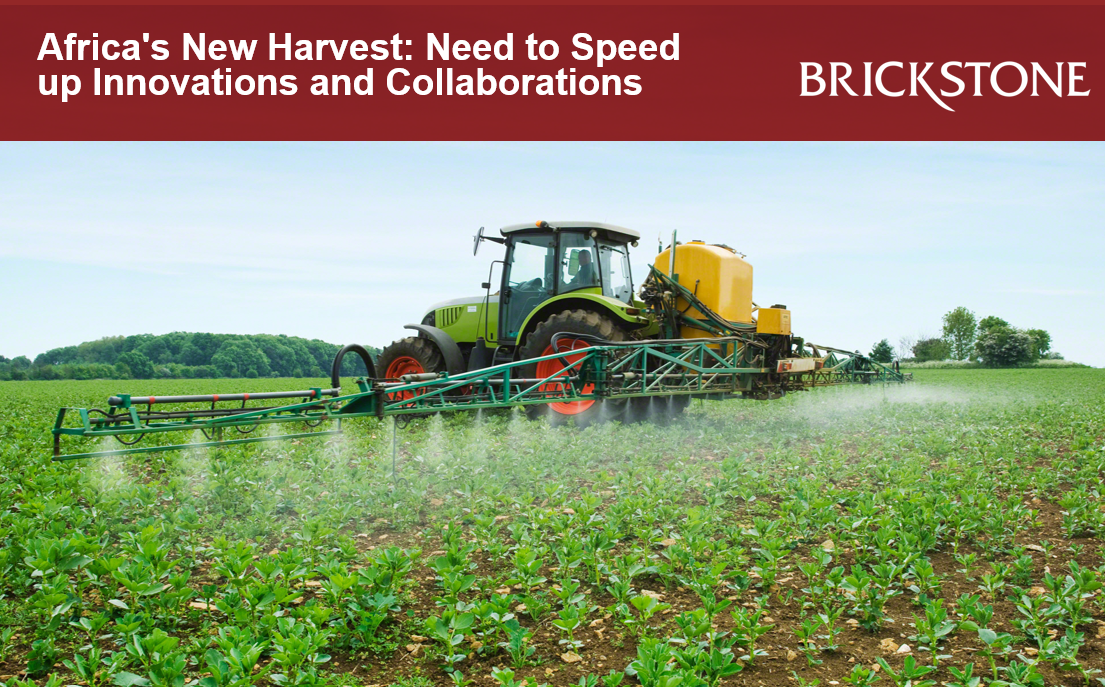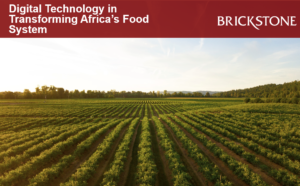Africa’s New Harvest: Need to Speed up Innovations and Collaboration
Agriculture in Africa has a massive social and economic footprint, as it remains the continent’s single most important economic activity. According to The Food and Agriculture Organization of the United Nations, agriculture, providing 60 percent of all employment, constitutes the backbone of most African economies; in most countries, it is still the largest contributor to GDP; the biggest source of foreign exchange, still accounting for about 40 percent of the continent’s hard currency earnings; and the main generator of savings and tax revenues.
Yet, with these benefits and opportunities, Africa’s full agricultural potential remains untapped. Despite its history of persistent food shortages and the rising threat of climate change, the continent has an abundance of the major ingredients needed to greatly expand agricultural production, capable of contributing largely to global food security. To realize this potential, experts call for transformation, and the need to speed up innovations and collaboration.
This article by Brickstone reviews some institutional reports and publications on the need to speed up innovations and collaboration in transforming agriculture in Africa.
Innovations and Collaboration in Transforming Agriculture in Africa
Agriculture is indisputably a veritable tool for economic growth and development as well as job creation in Africa.
Agriculture in Africa, has long seen as an underperforming sector, has over the past 10 years been recognized as the industry most able to provide both sustained economic growth and social inclusion on the continent. Agriculture today accounts for 32% of gross domestic product in Africa.
Beyond helping Africa, the sector has the potential for increasing production and productivity that can largely contribute to feeding the world in the future. This includes major natural inputs necessary for growing crops and raising livestock such as abundant land, and untapped water resources. In this regard, current estimates show that a fifth of the world’s forests can be found on the African continent. Additionally, every year, 3 million hectares of this important landscape are lost. 65% of Africa’s productive land is degraded, and 45% of the continent’s land area suffers from desertification.
These findings show that agriculture in Africa has more to give if its resources are adequately utilized and maximized. However, according to the World bank, the region has not lived up to its potential for many reasons such as fall in market shares, widening gap between regional demand and supply, low productivity gap in cash and food crops, unexploited irrigation potential, poor policy implementation, limited use of inputs and adoption of new technologies, and many more.
These significant factors will remain a constraint from witnessing sustainable economic growth in Africa. To ensure agriculture in Africa realizes its potential, there must be a significant turnaround from the status quo.
According to the United Nations, a promising transformation has already started in Africa’s farmlands. Family farmers are increasingly using innovative approaches and scientific research, combined with traditional knowledge, to increase the productivity of their fields, diversify their crops, boost their nutrition, and build climate resilience. This shift can go much further with the addition of digital tools or technological leverage, increased links to markets, and greater efficiency along agrifood chains, especially if the private sector and national policies also support the effort.
With these, agriculture in Africa will be more efficient, inclusive, resilient, and sustainable. Africa will be able to do more and better with less; hence bridging the production and productivity gaps in the sector.
Read more here.






